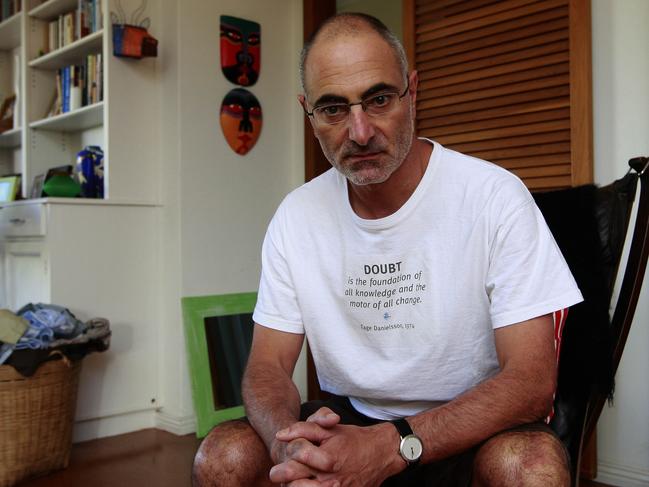Why our use of antidepressants has soared
With three million Australians reliant on antidepressants, experts have warned of a dangerous growth in the use of pills. And there are two big reasons for the increase.

Illness
Don't miss out on the headlines from Illness. Followed categories will be added to My News.
Exclusive: Three million Australians — one in every eight people including children — are now reliant on antidepressants as concerns mount we are over-diagnosing and over-treating depression.
Latest data from the Pharmaceutical Benefits Scheme shows in 2017-18, people aged 38-57 — dubbed the Prozac Generation — were most likely to be using antidepressants.
And in a concerning trend, more than 100,000 children aged under 17 are now using the medications up from 33,780 a decade ago.

This is despite the drugs not being recommended for use in this age group.
And for older Australians, use is even more widespread with one in four of those using the drugs aged over 68.
A new watchdog on mental health policy PsychWatch Australia is highlighting the data to question whether the medical profession is medicating the normal human experience of grief.
In 2015, an OECD report ranked Australia second only to Iceland for antidepressant use but new data shows since then antidepressant use here has grown by a further 10 per cent.
There has not been a worldwide comparison since this 2015 figure.
Children as young as two prescribed antidepressants
Australians second biggest users antidepressants in the world

Mental health researcher and former MP Dr Martin Whitely, who exposed how the youngest children in classes were the most likely to be given Attention Hyperactivity Disorder diagnoses, is behind PsychWatch Australia.
“Our mental health system that is ‘very sick’, and hooked on a cycle of over-diagnosis and over-medication,” he said in a new blog on the issue.
A range of factors are contributing to the frightening growth in pill use, he said.
Overstretched GPs who prescribe 85 per cent of the pills don’t have the time or the skills to deal with grief, relationship breakups or unemployment are resorting to pills over psychoanalysis to treat depression, he said.

The international guidelines for treating depression have also lowered the bar for diagnosing depression.
Previously the psychiatric bible the DSM-IV required that the symptoms of major depressive disorder last more than two months whereas DSM-5 only requires the symptoms to last for at least two weeks, Dr Whitely said.
“There are already plans to turn loneliness into a discrete psychiatric disorder treated with drugs,” Dr Whitely said.
“Unhappiness, angst, binge drinking and other forms of risk taking are common, particularly among younger Australians.
“However, claiming that, at any given time, one in four young people are ‘suffering from a mental health problem’ pathologises the normal human experience of trial and error,” Dr Whitely said.

Mental Health Australia chief Frank Quinlan agrees antidepressants are being overused but said they are one of the few tools available to GPs.
A secret combined state and federalgovernment report has found governments need to spend between $2-3 billion on community mental health, more public housing and other community supports to tackle mental health problems, he said.
“We’ve called on both major parties and the Greens to lay out plans to make this investment in the election campaign,” he said.
University of Adelaide psychiatrist Professor Jon Jureidini says antidepressants are overused and we are “medicating disappointment”.
“I don’t want to trivialise the distress people feel but before we consider putting people on drugs we need to look at concrete solutions like tackling their poverty or domestic violence, homelessness or unemployment,” Professor Jureidini said.
Beyond Blue spokesman Associate Professor Grant Blashki said it was appropriate to use antidepressants for moderate to severe depression where they were very helpful.
However, he said the widespread use of the pills indicated people with mild cases of depression were now using the medications when they were no more effective than a placebo.
In 2004, researcher Andrea Mant tracked a 29 per cent explosion in antidepressant prescribing in Australian after the introduction on the new treatment Prozac in the 1990s.
Before Prozac was introduced, average annual growth rates in sales of antidepressants was 1.1 per cent a year but between 1990 and 1995 growth rose 29 per cent before slowing to 6.6 per cent a year by 2002.
If you feel depressed or need to talk to someone, Lifeline is available 24 hours a day on 13 11 14 or at lifeline.org.au. You can also call the Suicide Call Back Service on 1300 659 467 or Beyond Blue on 1300 224 636.
